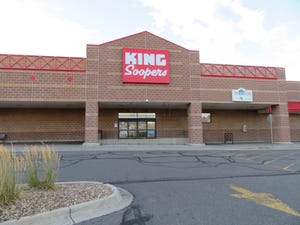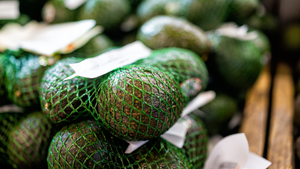THE VALUE IN PARTNERSHIPSTHE VALUE IN PARTNERSHIPS
ARCADIA, Calif. -- Partnerships between buyers and sellers can make good business sense in theory, but they can yield poor results in practice.That's because both sides, while eager to share increased profits, are not always willing to share the bad times, too.In this period of flat growth in the supermarket business, which has bred a search for efficiencies throughout the store, the notion of buyer-supplier
August 15, 1994
TONY SPLEEN
ARCADIA, Calif. -- Partnerships between buyers and sellers can make good business sense in theory, but they can yield poor results in practice.
That's because both sides, while eager to share increased profits, are not always willing to share the bad times, too.
In this period of flat growth in the supermarket business, which has bred a search for efficiencies throughout the store, the notion of buyer-supplier relationships is coming under closer scrutiny and is now cropping up more and more in the produce department.
To explore how partnerships can develop and
prosper in produce, SN interviewed partners involved in nurturing one of the hottest areas in the department -- precut produce.
The partners, Dick Spezzano, vice president of produce and floral at Vons Cos. here, and Christopher Nelson, chief operating officer of Ready Pac Produce, Irwindale, Calif., said their partnership, the seeds of which were planted six years ago, has helped both take precuts to a new level.
The notion of teaming up to make the precut category grow began when Spezzano toured supermarkets in France and saw a category that scarcely existed in the United States, he recounted. "The European value-added products, packaging and merchandising methods were far superior to what we were doing at that time," he said.
At the time Spezzano made his trip, he already had been doing business with Ready Pac, purchasing its limited line of coleslaw mixes, chop suey and microwavable vegetables. He said he had a good working relationship with the produce supplier, and believed Ready Pac would be the right partner to work with to develop salad mixes, a category he predicted could be a hit.
"I don't make partnerships very easily," Spezzano said. "A partnership between two companies is an association where both parties gain something by working closely together. That's as simple as I can put it. It's like going into a business venture; each partner needs to bring something that is unique and needed for the business."
So he called a meeting with Ready Pac and talked about what he had seen in France. He also told them that he would guarantee sales if they could replicate the types of products Europeans had available.
It was that commitment to guarantee sales, said Nelson, that prompted Ready Pac executives to take their own trip to Europe to see the product for themselves.
That visit eventually led to what Nelson characterizes as a risky investment of millions of dollars in equipment and licensing fees. The investment went toward using the technology developed by a French company to produce and package what has grown into a line of more than 80 value-added produce items ranging from salad mixes to microwavable vegetables.
"The financial risks that we took were staggering," Nelson said of the capital expenditures Ready Pac made to expand its value-added line. "We weren't sure if the consumer was ready for these products. It was Dick's commitment to stand behind us. He was our safety net."
Today Vons, which operates 344 stores in California and Nevada, is considered a leader in the marketing of precut produce, with an extensive variety and the most up-to-date refrigerated display cases. Although Spezzano declined to give specifics on how precuts perform as a percentage of total produce sales at Vons, he called his success with the category "tremendous."
Likewise, Ready Pac has seen great successes, said Nelson. The company, which just last year was distributing products in only 11 Western states, is rapidly expanding its distribution nationally. Just this month the company is set to start East Coast distribution from a plant in Florence, N.J., and plans are under way for three additional plants in the Midwest, Southeast and Southwest.
Sales of Ready Pac salad mixes and coleslaw nearly tripled to $42 million for the year ended April 1994, according to Information Resources Inc., a Chicago-based research firm. As of the end of June, Ready Pac, which is the third-largest precut processor in the country, had a 14% market share nationally and a 40% market share in the Western and Rocky Mountain states, where it is the strongest processor. (Fresh Express, Salinas, Calif., had a 40% market share nationally and 38% in the West; Dole Food Co., Westlake Village, Calif., had a 29% market share nationally, 12% in the West.)
Both Spezzano and Nelson give much of the credit for their successes with precuts to the partnership that has evolved since their visits to Europe.
What has made the partnership work? "People," said Spezzano. "That's the key. We talk. Not just executives, but also buyers and individual product supervisors."
Both companies include all levels of associates in decision-making in order to maintain a successful partnership, Nelson and Spezzano said. Both companies, they said, also adhere to a few basic principles. First, both are consumer-driven rather than commodity-driven. Each partner is flexible and willing to occasionally forgo short-term profits for potential long-term gains. And, finally, both are committed to working together to take costs out of the entire distribution chain, not just within their own companies.
Spezzano described the strategy for maintaining their partnership as fairly simple: "First, we have nothing on paper," he said. "We need to prove ourselves to each other on a daily and weekly basis. That means I have to sell product. I have to do the right things to make that happen."
Providing appropriate lighting, refrigeration, marketing and advertising are just some of the areas Spezzano said he needs to focus on in order to successfully move his value-added produce items.
Ready Pac's job, said Nelson, is to help Vons sell as much of the product as possible.
"Our goal is to make things faster, better and easier for Vons," Nelson said. "We consider ourselves an extension of Vons' produce department and marketing efforts. Anything we can do to help in their success will eventually make us successful."
One of the most important cost-savings benefits of the partnership has been in streamlining Ready Pac's distribution. According to Nelson, Ready Pac's distribution team invited Vons' warehouse manager to its plant to develop an efficient distribution method that would meet the needs of the warehouse. Ready Pac discovered that the way they were loading pallets was adding labor hours in Vons' warehouse. Warehouse workers had to break down the entire pallet load to sort the different products before getting them ready for distribution to the individual stores.
The team decided the warehouse operations would be more efficient if Ready Pac stacked products on the pallet in the order that would correspond to the location of the selecting lines in the warehouse. Now "products are set up on the pallet in the order they should come off. It maximizes our labor," said Spezzano. "The customer won't pay us for inefficiency."
Though it might be hard to believe, besides a few short-term losses in profits, neither Spezzano nor Nelson could say that they've sacrificed anything by partnering.
"I can't think of anything I'm giving up," said Spezzano. "As value-added becomes more competitive, lots of companies say they can knock the stuffing out of Ready Pac on [short-term] introductory pricing. Ready Pac may not always be the cheapest, but we evaluate quality, service and price. When you look at that equation, you'll see what makes a good partner."
Said Nelson, "A lot of times we do things for Vons that aren't profitable in the short term. There are times when they promote our items and it's not profitable for them. But we look at the longer view. Our sales have been growing, so I think it's working."
Spezzano and Nelson strategically promote products together with an eye on building consumer loyalty and the future growth of the category. When the market for romaine lettuce is high, for example, Vons promotes Ready Pac's Caesar salad mix.
While still priced high relative to the price of romaine -- $2.49 for a 10-ounce salad mix, compared with a peak price of around $1 a pound for the naked lettuce -- the perceived value of the salad mix improves when lettuce prices are high and the salad mix price remains the same or goes down on ad, Spezzano said.
"We promote it not when romaine is cheap, but when it is priced high," he said. "It becomes an alternative to [high-priced] romaine."
According to Nelson, the company promotes "contrary to what's in the best interest of our profitability but what is in the best interest of the consumer. It's expensive on one side, but long-term it's an investment. The consumer gets a better benefit and we introduce people to our product who might not have tried it otherwise."
Once they try the salad mix, consumers are more likely to continue buying it when the price of romaine falls, Spezzano said. In Ready Pac's line of European salad mixes, the Caesar salad now has the second highest volume at Vons.
"Once people get used to convenience, we have a lifelong customer," Nelson added. "A promotion doesn't have to be profitable today."
As part of the partnership, Ready Pac staffers work in Vons' stores, assisting with merchandising, displays, resets and grand openings. "They have eyes and ears in my stores all the time, talking to our produce managers, straightening out product, rotating it, making sure we don't have old product out there, experimenting with new items," Spezzano said. An important benefit of Ready Pac staffers' presence, he said, is that they can take information back to their company that can be used to improve or develop new products or further streamline operations.
Spezzano, in turn, provides three stores to Ready Pac near its processing plant to test-market new products, which takes the place of a market research firm. Spezzano said he expects his partnership with Ready Pac to continue, as long as both companies are getting their needs met.
"I look at partnerships as long-term marriages. Sometimes they end because we take different directions and outgrow each other. In this case we have not outgrown each other. Hopefully, we'll continue to grow and prosper on both sides of the desk."
About the Author
You May Also Like




